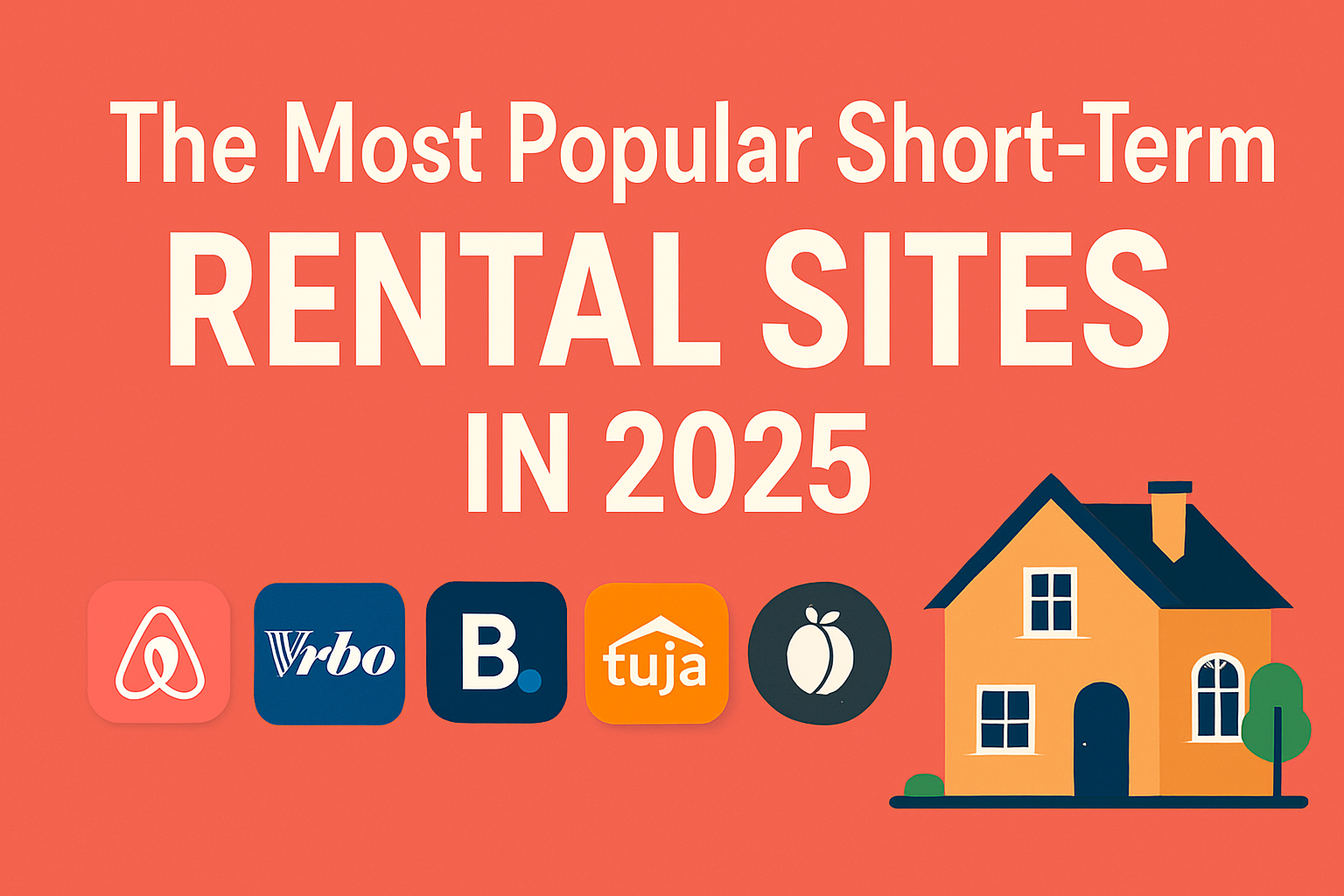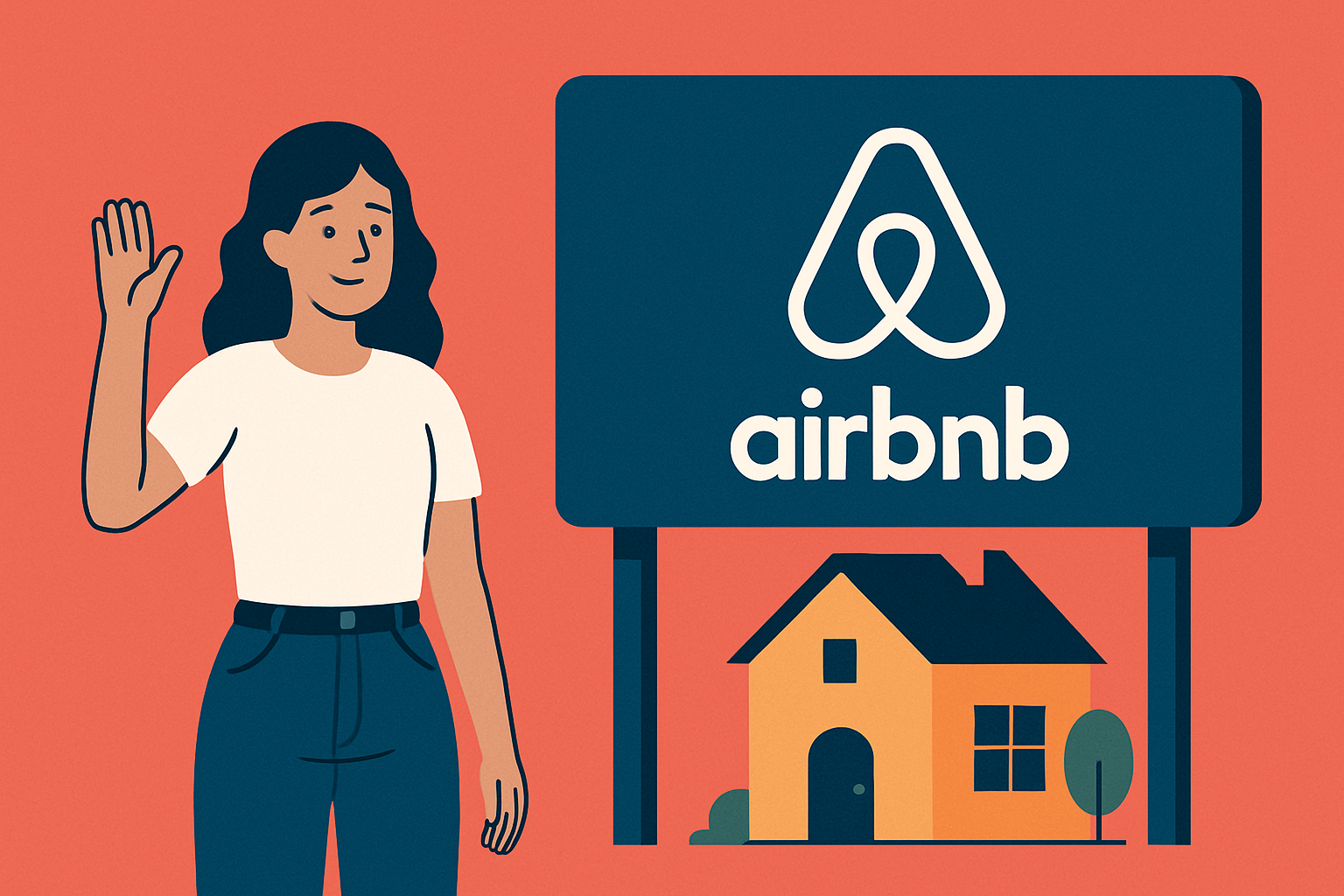
Discover the leading short-term rental platforms in 2025, from Airbnb and Vrbo to emerging players like Sonder and Tujia. Explore the best options for travelers and hosts seeking unique stays and seamless booking experiences.
Let’s face it—travel in 2025 isn’t what it used to be. Hotels are nice, sure... but if you want a mountaintop yurt, a luxury loft with floor-to-ceiling views, or just a quiet place with decent Wi-Fi and a coffee machine? Short-term rental sites are where it’s at.
This year, we’ve seen a major glow-up in the rental scene. New players are joining the game, tech is changing how we book, and travelers are getting very specific about what they want. And whether you're a digital nomad, family vacation planner, or spontaneous weekend warrior, there's a rental site built just for you.
Here’s your no-fluff, no-boring-stats guide to the top short-term rental sites in 2025. Let’s break 'em down.
Ah yes, Airbnb. The OG. The trendsetter. The reason your grandma knows what a “superhost” is.
In 2025, Airbnb is still crushing it, with millions of listings across pretty much every corner of the globe. Want a castle in France? A treehouse in Bali? A glass dome in Iceland? It’s all there.
What keeps Airbnb at the top is its range. Whether you’re ballin’ on a budget or living like royalty, there’s something for you. And for hosts, it’s still one of the easiest platforms to use—super polished, packed with tools, and backed by a giant community.
But heads up: with great power comes... kinda high fees. Some travelers are starting to notice the price creep. So if you're all about value, keep reading.

Vrbo (pronounced ver-bo, not verb-oh, btw) is the grown-up, family-first cousin of Airbnb. No shared rooms. No awkward living-with-the-host situations. Just full homes, all day, every day.
It’s the go-to platform for groups, big families, and anyone planning that long-awaited beach house reunion or mountain cabin escape. The interface is clean, filters are solid, and you know what you’re getting: space, privacy, and chill vibes.
If you’re traveling with kids, pets, or grandparents—or just want your own space—Vrbo’s where it’s at. Bonus: it often has better pricing for long stays.
Surprised to see Booking.com on this list? Don’t be. It’s made a major pivot into the short-term rental world.
You probably used it once for a hotel in college. But now? It’s loaded with vacation rentals, apartments, cabins, even houseboats. The best part? No logins or accounts required. You just... book it. Like magic.
It’s familiar, it’s fast, and it’s got great customer service. If you’re in a rush and want no-nonsense, Booking.com is your best friend.
If you’re heading to China or anywhere in Asia, you need to know about Tujia. It’s the region’s answer to Airbnb, but it’s not just a copycat—it’s tailored for local travelers with smart, culturally relevant features.
And now, it’s expanding beyond Asia.
The cool thing about Tujia is how intuitive it feels for Chinese travelers—local payment options, familiar customer service, and homes that match regional preferences. It's becoming the platform to use in Asia—and honestly, it’s starting to pop up in places Airbnb hasn’t fully cracked yet.
Imagine a world where every single listing is stunning. That’s Plum Guide.
No janky couches. No weird DIY lighting. No surprise shared bathrooms. Just premium, polished, and photo-shoot-worthy properties that pass a 150-point inspection (seriously).
If you’re the kind of traveler who triple-checks thread counts or must have an espresso machine, Plum Guide is your happy place. It’s not about quantity—it’s about ✨quality✨. And yes, you’ll pay a bit more, but every stay feels like a feature in Architectural Digest.
Sonder is what happens when a startup decides, “Let’s fix everything annoying about hotels and rentals.”
What you get is a sleek, app-powered experience: check-in on your phone, stylish interiors, consistent layouts, and real beds (no futons here). Most of their spaces are in city centers, and Sonder actually manages the properties themselves. So no weird surprises or flaky hosts.
It’s like a hotel... but cooler. Perfect for business travelers, weekend city-hoppers, and anyone who values predictability and polish.

Working remotely and planning to live in Lisbon for a month? Maybe Bangkok for three? Housestay has your back.
It’s built for longer stays—think 30 days or more. The places come with full kitchens, Wi-Fi that actually works, desks you can sit at for more than 10 minutes, and everything else a remote worker needs to stay sane.
It’s not flashy, but it’s functional, affordable, and aimed squarely at the "work from anywhere" crowd. If that’s your life in 2025, this is your rental HQ.
There’s a fresh batch of platforms making moves:
These guys are lean, niche, and growing fast. They may not be mainstream yet, but they’re carving out loyal audiences with unique value.
Short-term rentals in 2025 are more than just a place to sleep—they’re part of the experience. Whether you’re globe-trotting in style, working your way around the world, or just booking a weekend escape, there’s a platform out there that’s made for you.
The key? Know what you need. Then pick the site that does it best.
Happy booking. ✈️